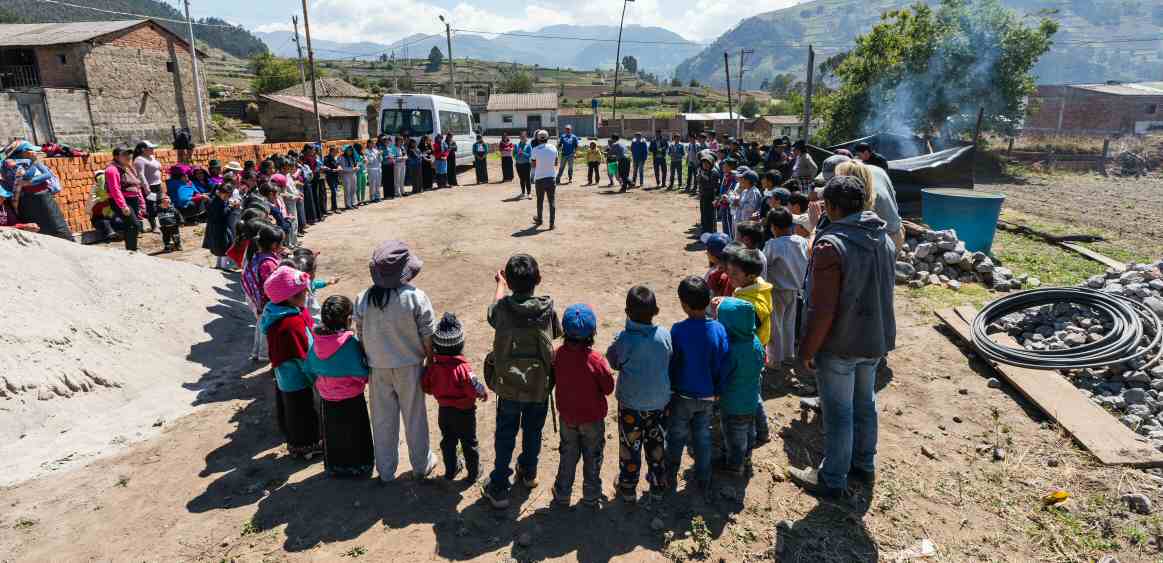
Photo by Dario Valenzuela on Unsplash
PHEL 680 Integrated Community Development
An examination of health factors and how they interrelate with other factors in the development of communities. Issues of environment, poverty, gender, justice and equity will be studied for their role in individual and family health. The course will incorporate field experience to observe institutions and agencies implementing agricultural, nutritional, educational, livelihood and other projects.
Units: 3
|
WHO NEEDS THIS COURSE? Graduate students:
This course may also be taken by
|
TIME INVESTMENT This class is both theory and practice-based. To guide you in managing your time, the dates and time of submission of the assignments are clearly presented in the course outline. For effective learning, assignments, especially discussion forums, which need immediate and timely feedback, need to be completed as scheduled. In general, you are required to submit four (4) reading reports for this class, identify and make your own arrangements to visit or virtually interview an organization (government or nongovernmental) in your community that is engaged in community development, and submit a 10 – 12-page report; in addition to a research paper of 12-15-pages. In view of the above requirements, you will need to spend at least 10 hours per week for this course. |
COURSE OUTCOMES
Upon completion of this course, the students will be able to:
- Demonstrate an understanding of the global and local factors that impact the health and wellbeing of the rural and urban poor.
- Appreciate the role of historical, cultural, and environmental factors in framing the existing social, political and economic conditions and their contribution to the prevalence and persistence of poverty and disease.
- Analyze the successes and challenges faced by agencies implementing integrated community development programs and the ethical and sustainability issues they face.
- Appreciate the multidimensional nature of human existence and importance of spiritual and emotional aspects of holistic human development and wellbeing.
TOPICS TO COVER
| Week 1 |
Concepts and Definitions |
| Week 2 |
Poverty, Incomes and Livelihoods |
| Week 3 |
Social and Cultural Factors of Health |
| Week 4 |
Gender and Health |
| Week 5 |
Environment and Health |
| Week 6 |
Water and Sanitation |
| Week 7 |
Food Security and Nutrition |
| Week 8 |
Community Building and Equity |
| Week 9 |
Final Examination |
COURSE FACILITATOR
 |
GODWIN AJA, DrPH DR. GODWIN AJA is a professor of Health Promotion and Community Health under the Public Health Department of the Graduate School at the Adventist International Institute of Advanced Studies. Before coming to AIIAS, he taught at the university level in Nigeria for more than two decades. He has served as an adjunct professor and external examiner/assessor to universities in Africa, Asia, Europe and the USA for several years. He earned his DrPH in Health Education at Loma Linda University School of Public Health, California, USA. Distinguishably, he was appointed as a World Health Organization (WHO) Temporary Adviser for the International Dialogue on Evidence-Action for Improving Health in Developing Countries (IDEA-Health). He has numerous research publications to his credit in the areas of health promotion and community health development. |
COURSE DEVELOPER
 |
AYUKA OENDO, PhD Dr. Ayuka Oendo is a health educator, research scientist, social development and public health consultant in Africa, Asia and the USA. He taught in the Public Health Department of the Graduate School at the Adventist International Institute of Advanced Studies for several years. He earned his MPH with emphasis in International Health at Loma Linda University of Public Health in California, USA and his PhD in Social Anthropology at University of Cambridge, United Kingdom. He has written numerous research articles in various journals and published books related to social sciences and integrated community development. |
